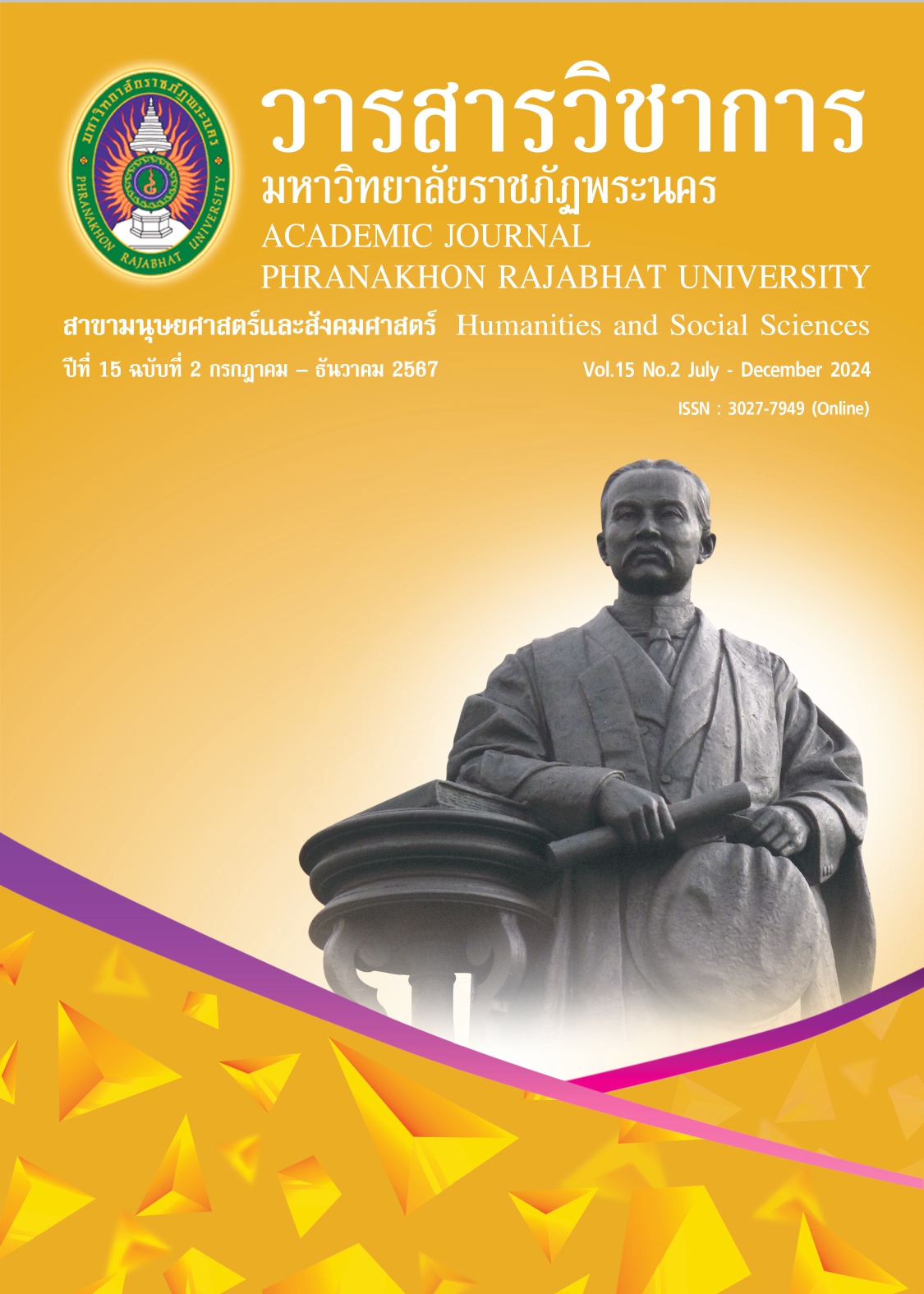INFLUENCE OF CHARACTERISTICS OF VIRTUAL ANCHOR ON FANS’ REWARD BEHAVIOR: A CASE STUDY OF CHINESE MARKET
Keywords:
Characteristics, Chinese Market, Entertainment Virtual Anchor, Fans’ Reward BehaviorAbstract
This article examined how the characteristics of Virtual Anchors affected fans’ reward behavior during live broadcasts. It also investigated the live broadcast factors influencing the internal states of Virtual Anchor fans and explored whether emotional attachment and identity served as mediating variables. The study was grounded in SOR Theory, supplemented by Body Consumption Theory, Prototype Theory, the "Three Bodies" Theory, Attachment Theory, and Identity Theory, and constructed a reward behavior model for users who have watched Virtual Anchors’ live broadcasts. A quantitative research design was used to collect data and test the hypothetical model. In this survey, 550 questionnaires were distributed, and 507 were successfully recovered. The quantitative data were analyzed using confirmatory factor analysis, path testing, and mediating effect testing. The results showed that the characteristics of Virtual Anchors had a positive impact on fans' reward behavior. The test results confirmed a significant correlation between the independent variables—the external image of the Virtual Anchor ("leather case"), the character setting of the Virtual Anchor, and the personality charm of the Virtual Anchor ("the person in the Virtual Anchor")—the mediating variables of emotional attachment and identity, and the dependent variable of fans’ reward behavior. The Bias-Corrected Bootstrap method confirmed the mediating effect of emotional attachment and identity. This study demonstrated that the characteristics of Virtual Anchors positively influenced fans’ reward behavior.
References
Bagozzi, R., & Yi, Y. (1988). On the evaluation of structural equation models. Journalof the Academy of Marketing Science, 16(1), 74-94.
Bai, D.H. (2021). Research on fans of virtual idols. (Master dissertation). Xiangtan University, Xiangtan.
Baudrillard, J. (1970). Material system “M”. 2016. Shanghai, China: Shanghai People’s Publishing House.
Belk, R. W. (1988). Possessions and the Extended Self. Journal of Consumer Reaearch, (15), 139-168.
Boellstorff, T. (2015). Coming of age in second life: an anthropologist explores the virtually human. Princeton, America: Princeton University Press.
Bowlby, J. (1969). Attachment and loss: attachment. New York, America: Hogarth Press.
Carl, G. J. (1912). Subconscious psychology. Shanghai, China: Shanghai Literature and Art Publishing House.
Cassirer, Ernst. (1954). An essay on man: an Introduction to a philosophy of human culture. New York, America: Doubleday & Company, Inc.
Cronbach, L.J., (1951). Coefficient alpha and the internal structure of tests. Psychometrika, 16(3), 297-334.
Efron, B., & Tibshirani, R.J. (1993). An Introduction to the Bootstrap. London, England: Chapman and Hall.
Eriksson. (1998). Identified youth and crisis. Hangzhou, China: Zhejiang Education Press.
Feng, Z.H., & Fan, Z.L. (2021). Research on the Development Status of Virtual Anchor Industry in China. Modern Audiovisual, 20(3), 44-49.
Fornell, C., & Larcker, D.F. (1981). “Evaluating structural equation models with unobservable variables and measurement error,” Journal of Marketing Research, 18(1), 39-50.
Goffman, E. (1989). Self-presentation in daily life. Zhejiang, China: Zhejiang People’s Publishing House.
Gong, Z.Y., Shen, W.J., & Li, F.H. (2021) Application and Related Technologies of Virtual Anchor in Various Fields. Electronic Technology and Software Engineering, 10(8), 165-166.
Guo, J.N. (2020). Research on subculture style of network virtual anchor. (Master dissertation). Xiangtan University, Xiangtan.
Hu, J.N. (2022) Emotional Attachment and Consumer Rationality: A Study on the Phenomenon of “Love Collapse” in the Idol Industry Era. Contemporary Youth Studies, 41(5), 49-56.
Huang, S.X. (2022). Research on consumption behavior of short video users from the perspective of identity. (Master dissertation). Hubei University for Nationalities, Enshi.
Li, T. R. (2020). Research on symbol consumption and identity of “people’s design” fans. (Master dissertation). Hunan Normal University, Changsha.
Liu, J. J. (2023). Analysis of Audience Emotional Satisfaction under Virtual Anchor Culture. Journal of Changjiang Normal University, 27(1), 70-77.
Luo, C.H., Liang, H., & Zeng, W. (2021). Research on Influencing Factors of Consumers’ Purchase Intention under Live Delivery Based on SOR Model. Modern Shopping Mall,39(16), 1-4.
Mehrabian, A., & Russell, J. A. (1974). An approach to environmental psychology. Cambridge, England: The MIT Press.
Pei, W.X. (2022). Research on Two-dimensional virtual anchor role design under the background of secondary culture. (Master dissertation). Jiangnan University, Wuxi.
Shang, Y.W. (2022). Research on Virtual Anchor Culture from the Perspective of Landscape Social Theory. News Research Guide, 13(24), 1-4.
Song, C.T. & Qiu, X.K. (2022). Virtual Reality Interaction and Cyber Clusters: Identity Construction in Virtual Image Live Streaming. Expanding Horizons, 38(6), 54-61.
Tanijima Kunta. (2018). Virtual YouTuber and Communication Database, Yurika.
Tao, Y.C. (2022). Research on identity of virtual idol fans. (Master dissertation). Southwest University, Chengdu.
Wan, J.L. (2017). Reward or purchase: research on different payment models and decision-making behavior. (Doctoral dissertation). Huazhong University of Science and Technology, Wuhan.
Wang, J. (2021). Research on college students’ self-presentation on mobile short video platform from the perspective of media situation. (Master dissertation). Central University for Nationalities, Beijing.
Wang, R.X. (2020). Analysis of Virtual Live Broadcasting Phenomenon Based on 5W Mode. New Media Research, 6(8), 27-29.
Xie, M. (2019). From role to “people’s design”. (Master dissertation). Jilin University, Jilin.
Zhong, Q. (2018). Research on web-broadcast and gifting behavior——a case study of Feng Timo, a Douyu streamer. (Master dissertation). Shenzhen University, Shenzhen.
Downloads
Published
How to Cite
Issue
Section
License
Copyright (c) 2024 Academic Journal Phranakhon Rajabhat University

This work is licensed under a Creative Commons Attribution-NonCommercial-NoDerivatives 4.0 International License.
"บทความวิชาการในวารสารฉบับนี้ ถือเป็นความรับผิดชอบของผู้เขียนเท่านั้น"
สงวนลิขสิทธิ์ตามพระราชบัญญัติลิขสิทธิ์




